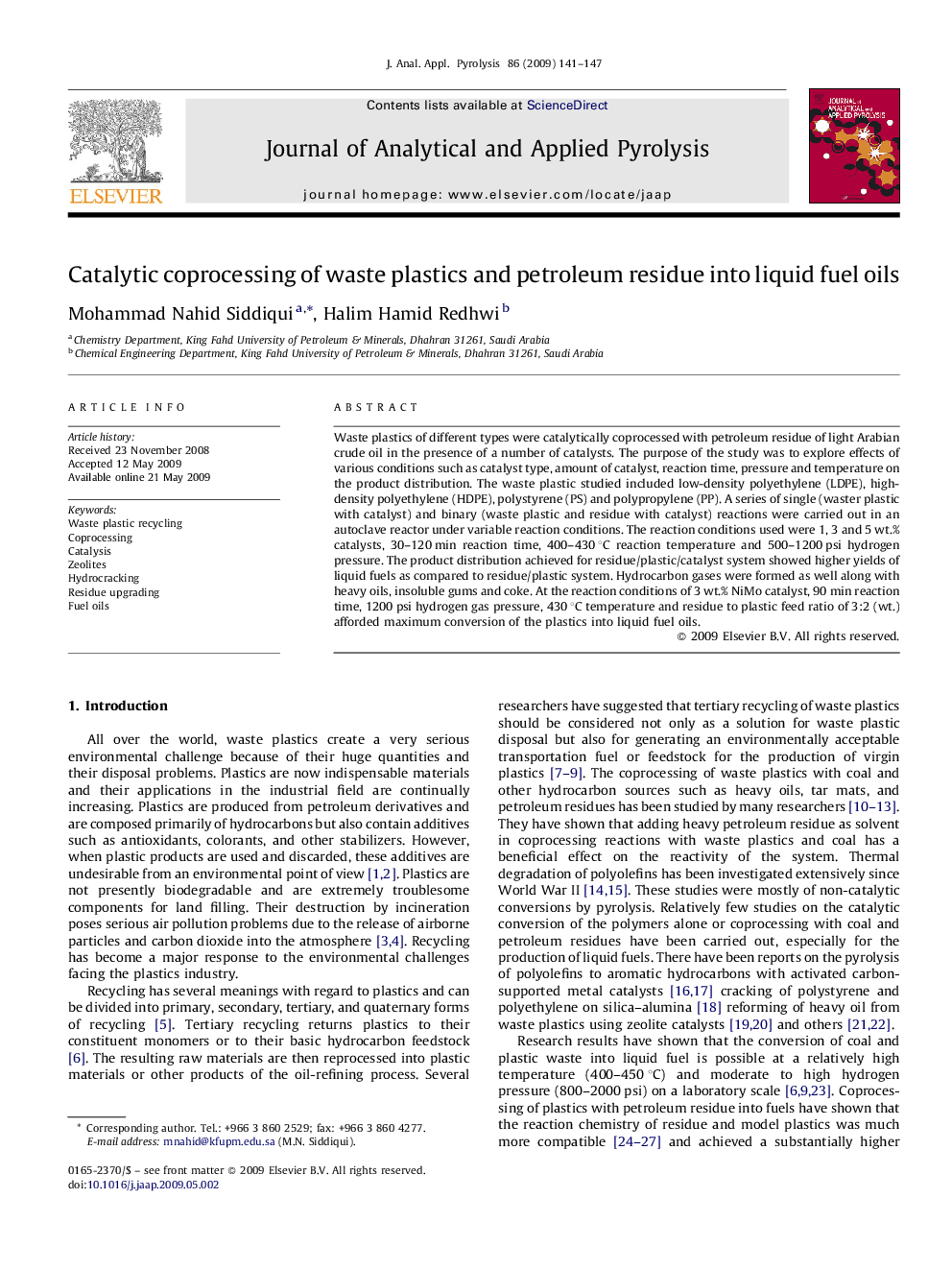| Article ID | Journal | Published Year | Pages | File Type |
|---|---|---|---|---|
| 1198574 | Journal of Analytical and Applied Pyrolysis | 2009 | 7 Pages |
Waste plastics of different types were catalytically coprocessed with petroleum residue of light Arabian crude oil in the presence of a number of catalysts. The purpose of the study was to explore effects of various conditions such as catalyst type, amount of catalyst, reaction time, pressure and temperature on the product distribution. The waste plastic studied included low-density polyethylene (LDPE), high-density polyethylene (HDPE), polystyrene (PS) and polypropylene (PP). A series of single (waster plastic with catalyst) and binary (waste plastic and residue with catalyst) reactions were carried out in an autoclave reactor under variable reaction conditions. The reaction conditions used were 1, 3 and 5 wt.% catalysts, 30–120 min reaction time, 400–430 °C reaction temperature and 500–1200 psi hydrogen pressure. The product distribution achieved for residue/plastic/catalyst system showed higher yields of liquid fuels as compared to residue/plastic system. Hydrocarbon gases were formed as well along with heavy oils, insoluble gums and coke. At the reaction conditions of 3 wt.% NiMo catalyst, 90 min reaction time, 1200 psi hydrogen gas pressure, 430 °C temperature and residue to plastic feed ratio of 3:2 (wt.) afforded maximum conversion of the plastics into liquid fuel oils.
